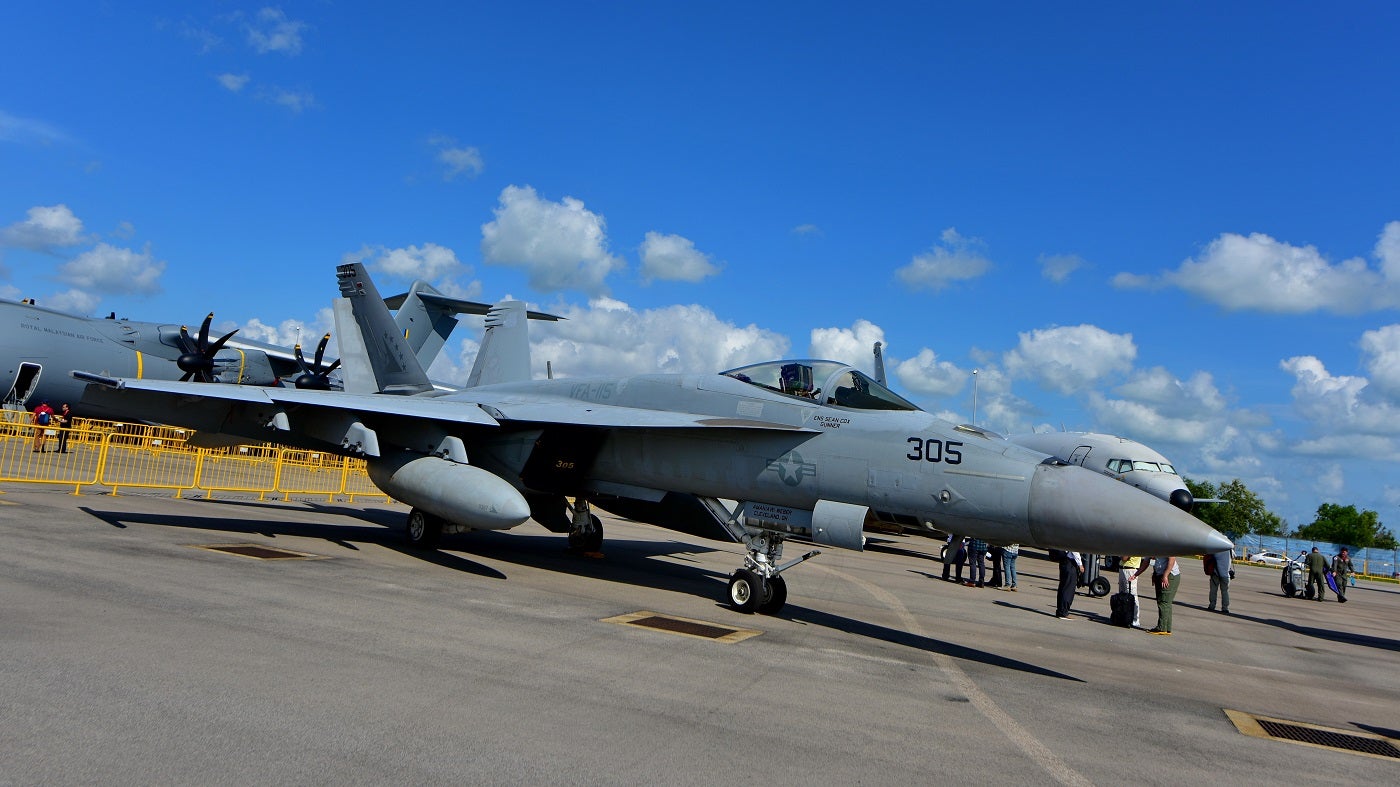
The US Air Force has awarded Boeing a $70m contract to provide critical general logistics support for Kuwaiti pilots on the F/A-18E/F fighter jet.
The deal supports the realisation of the F/A-18E/F entering the Kuwait armed forces as a strike fighter designed for traditional strike operations and air support. Kuwait has previously used the aircraft for homeland defence but is phasing out its fleet of Hornet F/A-18C and F/A-18D aircraft.
Work on the project includes general logistics support, logistics programme management, and logistics support to aircraft during pilot training with Sniper advanced targeting pods (ATPs). It will be carried out for three years and will help enhance targeting capabilities.
This contract will strengthen Kuwait’s capability to counter regional threats and safeguard its borders and major infrastructure, according to the US.
GlobalData’s “Kuwait Defense Market 2022-2027” report claims the Kuwaiti Government is set to host one of the largest US military airbases in the Middle East at an expected cost of $32m. The construction of the new Cargo City will enable Kuwait to enhance the operational effectiveness of its military and promote security and stability throughout Kuwait.
The 1990 Iraqi invasion of Kuwait and the subsequent occupation by Iraq, which lasted for almost seven months, prompted Kuwait to focus on developing a robust defence capability. Kuwait has since used its oil and gas export revenues to fund its defence procurements.
Kuwait’s military fixed-wing market forecast is valued at $496m but is projected to reach $1bn by 2026, according to GlobalData’s report “The Global Military Fixed-Wing Aircraft Market Forecast 2023-2033.”
However, last month, Boeing announced plans to end the F/A-18 Super Hornet aircraft production in late 2025.
Kuwait, Boeing, and the US’s three-way linkage go back to the 1990s, as Kuwait acquired military fixed-wing aircraft from Boeing. Currently, in Kuwait’s equipment inventory, Kuwait has 31 F/A-18C and eight F/A-18D, with both acquisitions taking place in the early 1990s following the invasion of Iraq.
In September 2022, the US announced that it had approved M1A2K tank ammunition sales to Kuwait.




